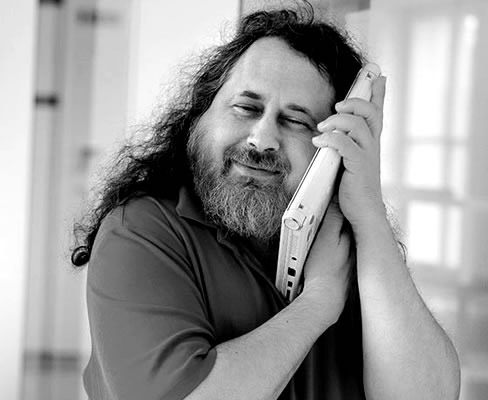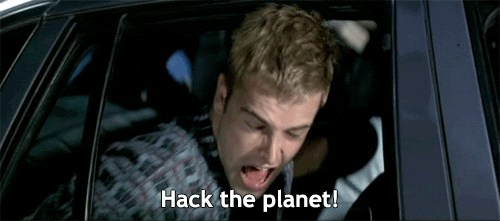April 13, 2020 – During the last weeks, an international wave of Hackathons took over the internet, inviting us all from Germany, Switzerland, Sweden, and the USA to jack in and “Save the World” with our keyboards, literally.
In this article, you’ll learn about two Croatian Hackathons, the “Data vs Corona” held on the last 7th of April, and the “VersusVirus.hr” starting next 17th of April. Both organized from within our beloved Croatia with members and participants from anywhere on the planet.
Before listing the winners of “Data vs Corona” and before I tell you how you can participate in “VersusVirus.hr” next weekend, I think it’s imperative for me to give you a quick intro into the “Hacker culture”, I’ll start by rectifying the definition of “Hacker”, the origin of the word, and list you a few examples to show the importance their role in our society.
Last week I used the word “Hackathon” outside of the typical techy environment I frequent, and the reaction of most people was far from positive, they immediately pictured a room full of computer-criminals who decided to use their safe-cracking skills for good (at least this once). This is a very painful misconception about the nature of “Hackers” and their role in our society. I clarified the misconception the first time to one of my colleagues, then a second time with a family member, then a friend told me he would not like to be related to “Hackers” when I invited to join, and I realized everyone thinks of “Hackers” as criminals.
So, before I go on inviting you to sign up to “VersusVirus.hr” until Friday 17th of April using this Google form, I think it’s important you understand Hackers are not criminals, in fact, we need more of them in our society, if you have one in your company embrace him or her as an Olympian, award them a Laurel leaves crown to wear around their heads and send them over to represent your company at “VersusVirus.hr”.
But Gustavo, hold your horses, aren’t all hackers criminals? Programmers with no morality using their knowledge to sneak into computer-systems without permission?
The quick answer is NO, in fact, there is no such thing as a “bad” Hacker. What has been presented to you in movies and TV series wearing the “Hacker” label, is described as a “Cracker” in the “Hacker culture” jargon.
And what about the whole white-hat, black-hat Hacker story?
Well, I know people that identify themselves as Unicorns. They are awesome! but please, don’t expect me to put their picture next to the Webster definition of a unicorn.
Every culture evolves, and so has the hacker culture. It has evolved and propagated so widely that today the #Hack has become a common social media tag used to showcase creative and smart solutions to everyday tasks or problems.

If you’re curious about the “hacker culture” and want to learn about how it all started in 1960 when the term “Hacker” started to be used to describe proficient computer programmers, then, I strongly recommend you read into this Wikipedia article on “Hacker culture”.
As per the legendary “Jargon File”, made by Raphael Finkel at Stanford in 1975, the definition of Hacker is:
“
hacker: n.
[originally, someone who makes furniture with an axe]
- A person who enjoys exploring the details of programmable systems and how to stretch their capabilities, as opposed to most users, who prefer to learn only the minimum necessary.
”
Follow this link to read the full definition in the Jargon website, definitions 3 and 8 are very interesting and insightful! The latest edition was published in 1996 as The New Hacker’s Dictionary (ed. Eric S. Raymond)
Ok, so you’re telling me that there is some kind of “Ethics” Hackers follow?
Correct! As Steven Levy summarized in the preface of Hackers, the general tenets or principles of hacker ethic include:
- Sharing
- Openness
- Decentralization
- Free access to computers
- World Improvement (foremost, upholding democracy and the fundamental laws we all live by, as a society)
The fundamental characteristic that links all who identify themselves as hackers are ones who enjoy “…the intellectual challenge of creatively overcoming and circumventing limitations of programming systems and who tries to extend their capabilities”
Richard Stallman explains about hackers who program:
“What they had in common was mainly love of excellence and programming. They wanted to make their programs that they used be as good as they could. They also wanted to make them do neat things. They wanted to be able to do something in a more exciting way than anyone believed possible and show ‘Look how wonderful this is. I bet you didn’t believe this could be done.’ ”
I see, so Hackers are not evil! What does it mean to me? Why should I care?
Because we stand on their shoulders. Our life would not be as pleasant without the efforts of “Great Hackers” such as Linus Torvalds (creator of the Linux kernel, and GIT the versioning control system) 100% of all world supercomputers run on Linux (even the server of this website does) or Richard Stallman (Creator of the GNU Manifesto) who back in the ’50s in the MIT Artificial Intelligence Labs saw the need to defend transparency, and the openness of code.

Stallman on “Why I Must Write GNU”: “Software sellers want to divide the users and conquer them, making each user agree not to share with others. I refuse to break solidarity with other users in this way. I cannot in good conscience sign a nondisclosure agreement or a software license agreement. For years I worked within the Artificial Intelligence Lab to resist such tendencies and other inhospitalities, but eventually they had gone too far: I could not remain in an institution where such things are done for me against my will.”
The first computer Hackers of the ’50s had all engineering, Math or Physics backgrounds and stood therefor on the shoulders of earlier “Master Wizards” and “Gurus” such as Charles Babbage, Albert Einstein, and Nikola Tesla (of Serbian heritage, born in Croatia, died in New York) to whom we owe the wireless communications we enjoy today, not only the radio, but also our new WiFi and Bluetooth, all of it! We owe it to his genius, and to Tesla’s firm resolve to keep his inventions “Open Source” for the sake of humanity. #humbleBrag
As you can see, Hackers are a great asset to have in any crisis situation, they are problem solvers, creative minds, and some even say they “Think different”. What’s certain is that we are calling them out! So, if you feel like the Hacker definition describes your spirit…
- you can apply as a Volunteer by writing an email to versusvirushr@gmail.com
- or you can sign up as a Mentor at this link
And please, visit the website www.versusvirus.hr, inform yourself, and help us spread the word! We’re on a mission to Hack Croatia!

You can also follow the development of the winning ideas in Data vs. Corona following their website: datavscorona.com, and continue reading below what my colleague Janja Šestak reports on their Hackaton.
Janja Šestak: The Data vs Corona Hackathon was held this year on April the 7th. Around 200 participants gathered to brainstorm and hack solutions for the many significant problems the Coronavirus has brought to humanity.
There are many ways to organize a Hackaton, all of them, however, call out individuals and teams to work collaboratively and hack solutions in a short span of time (usually 24h) at peak performance. In the case of the “Data vs. Corona” Hackathon, the organizers decided to formulate the event as a competition! The prize? Pure honor! and the satisfaction of having found real solutions to the crisis affecting the health of so many of us around the globe.
The competition model has clear advantages. It incentivizes speedy solutions avoiding organizational tasks like getting to know other participants and distributing responsibilities among people you have never worked with before. The 24h concept helps keep participants in an “against the clock” mentality. Many teams are used to participate and compete in Hackathons, meaning that they have setups that allow them to open their laptops and dive in in a matter of seconds. You can envision Hackathons as tournaments for Software developers (and sometimes also data scientists). If we look at it from that perspective, the current rise of Coronavirus Hackathons around the globe would resemble something close to what I’d call the “e-Olympic games” of problem hacking.
Just before the start of the Hackaton last Saturday at 9:00 pm Zagreb time, we had the pleasure of talking with Ana Čupić from QAgency, the organizers. A young medical doctor recently graduated from the Medical School at the University of Zagreb who found a way to assist the health system through data science in this international digital collaboration.
Remembering that the prize is not the reason why this event was organized, but to find real solutions to very real problems, QAgency instructed the Jury to award the team with the solution that would bring the greatest positive impact on the health of the patients.
The Data vs Corona leader-board:
The Royal wildlings – project based on patient recovery data through a web-based application.
Team members:
- 1 Back-End Developer (Matteo Kinkela),
- 2 Front-End Developers (Aleksandar Đorđević, Nikola Miloradović)
The Infamous Warhogs – mission statement: light-weight medical resource tracking tool for managing respirator and bed availability to assist healthcare workers responding to COVID-19 hospital overload crisis (but it can be any other thing, not strictly bed) – web-based application.
Team members:
- Ivan Rimac (CRO)
- George Tollefson (USA)
- Alex Sotis (USA)
- Sanjid Rahman (New Zealand)
The Blue Wombats – Hospital Resource Tracker
Team members:
- Sam, Charles, Anthony, Omar, Alexa, Sebastian, Claire (all students from Santa Clara University)
Calm monsters – a simple, easily implemented software tool that shows where the need is and where supply is positioned for specific products and services
Team members:
- Michael Glazer, Srđan Kotuš, Ivan Pavlovič, and V. Ruttan










